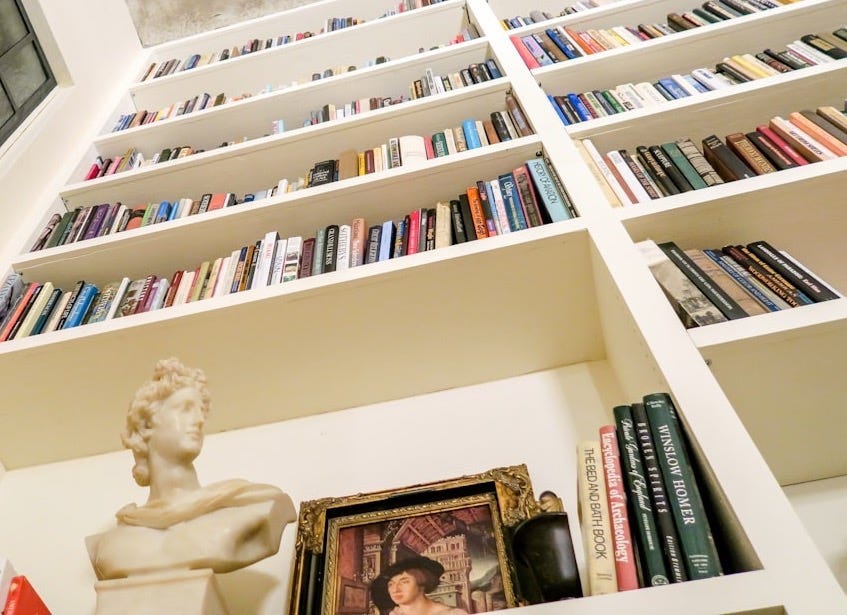
“And this I believe: that the free, exploring mind of the individual human is the most valuable thing in the world. And this I would fight for: the freedom of the mind to take any direction it wishes, undirected. And this I must fight against: any idea, religion, or government which limits or destroys the individual. This is what I am and what I am about.”
- John Steinbeck, East of Eden
The idea of distinguishing what’s most valuable, and to fight to protect it, the ways this is a personal, social, and political imperative… I’ve shared a list of the most influential books in my development here1, and here is the first one summarized, East of Eden, to further whet your appetite.
My Top Shelf Reads: “Thou Mayest”, East of Eden
In John Steinbeck's East of Eden, the theme of "Timshel" plays a central role in the novel's exploration of human choice, morality, and the struggle between good and evil.
Timshel is a Hebrew word that appears in the Bible, and in the novel, it is translated as "thou mayest." The word is pivotal because it suggests the idea that humans have the power to choose between good and evil, rather than being predetermined to act one way or another.
The word Timshel represents human agency—the idea that people are not simply victims of fate but have the freedom to choose their paths and actions. It contrasts with the belief in absolute destiny, allowing characters to believe that, despite their flaws or mistakes, they are still capable of choosing redemption.
Being in human bodies we are constantly err-ing. It’s impossible for any of us to execute our life perfectly, without a single mis-step. This is how I translate the concept of “original sin”. It’s a way of holding this understanding that human beings are in a process that is about development. We are born, we gain speech and mobility, we gain capacity to choose, and this, by definition, opens us up to error. You have the car keys and you’re driving on a road in a rain or snow storm and you find yourself suddenly at the effect of decisions you’ve made that do not guarantee your physical safety.
How did you cause yourself to be driving on a road without awareness, knowledge, or appropriate caution for the ways in which you may be miscalculating your moment to moment decision making? Because the choice you make this moment may be one that you start regretting only after you’re embedded the reality of what your choice just caused.
Why not let go of the past and be present in the moment at your feet? The only moment you can do a damn thing about, after all.
How will you choose differently, knowing what you now know?
You might need to start learning to pay closer attention to what reality is, and less what you’ve made up that it is.
When you get to the other side of that experience, you can choose differently, you can navigate differently.
You can create differently.
It’s good. It’s beautiful.
It allows for us to gain humility in experiencing our redemption, our love.
Throughout the novel, characters grapple with this idea of choice. Cal Trask struggles with the guilt of inheriting his mother’s "evil" nature, but Timshel gives him hope that he can rise above it and make better choices.
Ultimately, Timshel embodies the possibility of moral redemption through conscious choice, asserting that no one is bound to a fixed destiny, but can always choose how to act. It's a message of hope and responsibility in the face of the inherent darkness and complexity of human nature.
& thanks to ChatGPT for support in helping to draft these summaries, so that I can add my own modifications.
To see this book in the context of the others that have been most pivotal for me, check out My Top Shelf Reads.
My Top Shelf Reads
Springtime. I’ve been failing in my commitment to craft a weekly drop of my thoughts to share. Visiting friends, traveling, giving shape to intentions in The Real World keeps me distracted. Spring fever is a thing. Particularly for those of us who’ve weathered record cold and snow these past months.



